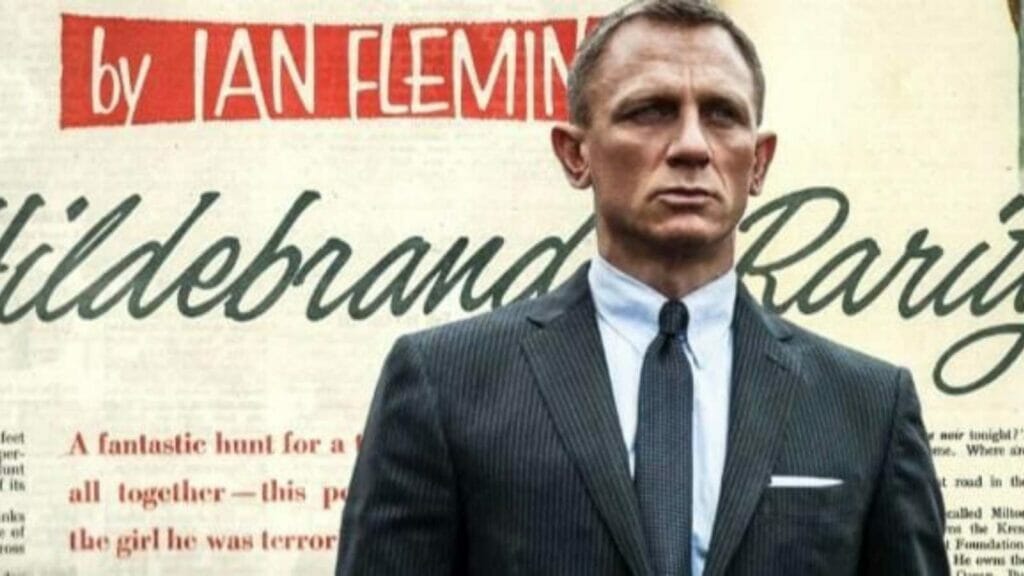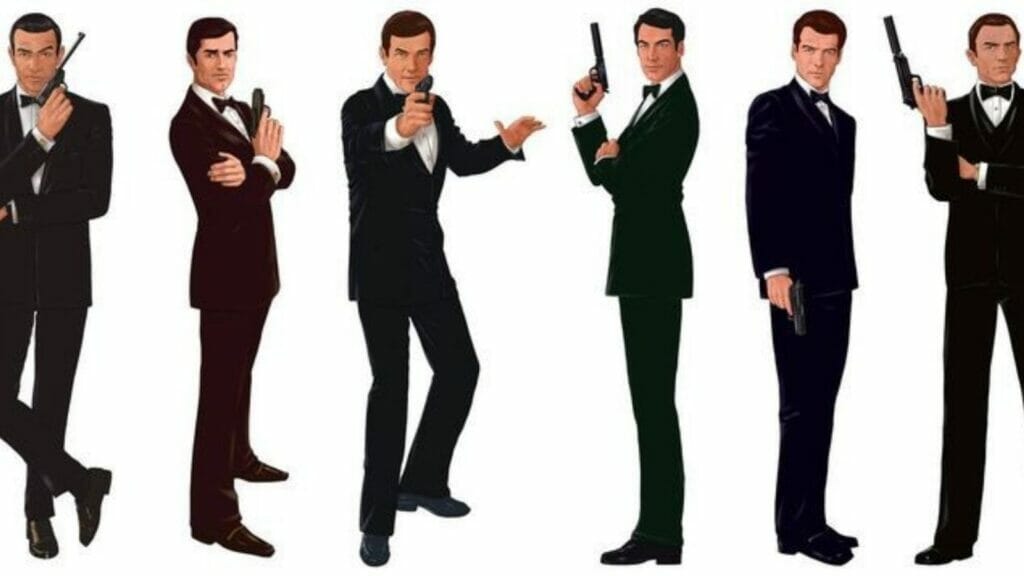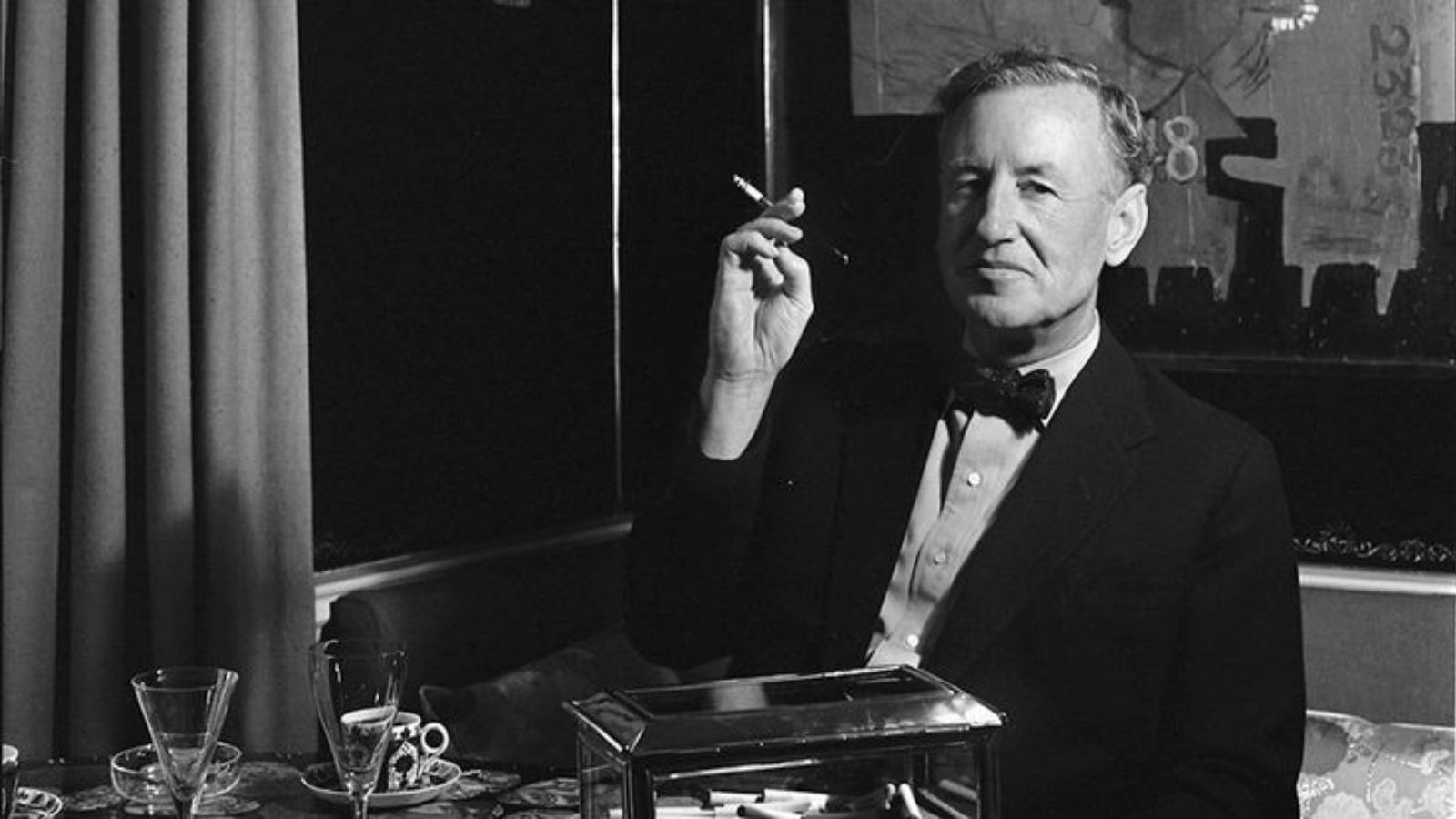Ian Fleming was a British author and former naval intelligence officer. He served in the Royal Navy during World War II. He is well known for his fictional work, but what you might not know is that all the James Bond novels and films are based on Fleming’s own life, so yes James Bond movies are indeed based on reality!
Ian spent much of his wartime career as an Assistant to Admiral John Godfrey, Director of Naval Intelligence. It was here that he would have been privy to classified information such as codes and ciphers, which later inspired many of his espionage plots. His time with Godfrey also allowed him access to people like Marcus Lipton MP, who was famously portrayed as a villain in Diamonds Are Forever (1956).
Ian Fleming, the author of the James Bond novel series, was closely involved in the world of espionage during WWII. Unlike other authors with titles like “Escape to Lisbon”, which appeared while Fleming was an official operative, he wrote his books as independently developed “documentary fiction” to conceal any actual involvement on his part. However, it is believed that by creating Bond’s personality and style, Fleming assisted the British government during this period.
In 1941, Fleming published a short story called “The Lickerish Quartet” about a group of four spies- two women and two men – who successfully fight off enemies from all over Europe by using high-tech gadgets and skills.
The Reality Of 007

Since the release of “Dr No” in 1962, James Bond has been a pop culture icon, inspiring many films and books, with 25 films produced over 50 years. Some extend to the fantastical realms, with car chases and gunfights on foot. Others are grounded in reality. So where does the line fall between the two?
It might seem like the James Bond movies are just a bit of cinematic escapism. You can certainly enjoy them that way. But, there is something else going on here: The Bond movies — and the entire genre — reflect the geopolitical realities of their day.
Consider how many Bond films begin in Europe: Casino Royale (1967), On Her Majesty’s Secret Service (1969), and Goldfinger (1964). Remarkably, all three of these movies were made in years when Europe was rocked by political upheaval and violence: 1967 for the Six-Day War; 1969 for student protests in France; 1964 for Franco’s dictatorship in Spain.
So perhaps Mr Bond’s visit to Switzerland in Casino Royale was more than just a convenient place to stash his ill-gotten gains. It was probably a haven from something real and dangerous going on in the rest of Europe.
You can also see a geopolitical theme when you look at the locations for many of the Bond films: he spends a lot of time either on holiday or “on assignment” in exotic locales around the world. Though it would be fun to go on vacation with James Bond, it would also be fun to go on vacation with the author who created him — Ian Fleming.
Fleming himself did just that when he wrote those novels: he visited all those places and met many fascinating people along the way.
Ian Fleming’s War: The Inspiration Behind 007

If you are a fan of James Bond movies then you will need to know how Ian Fleming became the author of the James Bond novels. War was not only instrumental in assisting him with that but also helped create the 007 agents.
Let’s start with his experience at Eton College, where Fleming’s classmates included many of Britain’s future elite who would go on to serve in World War II. A sense of being an outsider is what more than anything else may have set Fleming apart. He had missed out on two years of school because of illness and already had a firm sense of himself as an outsider looking in at some glamorous world he could never be part of.
Adulting, even though Ian Fleming was not a combatant during the Second World War, he nevertheless managed to contribute significantly to the war effort. From May 1939 Fleming worked at the Naval Intelligence Division (NID) and contributed his knowledge and experience as an author and journalist to help with wartime planning. He is most well known for his work on Operation Mincemeat, codenamed “Bodyguard” by Winston Churchill.
Fleming’s contribution to this operation was recognized in a letter from Churchill: “The whole secret of your success is that it has been based upon naval intelligence obtained from signals.
Ultimatum:

In conclusion, James Bond movies are based on true events. During World War II, James Bond (Ian Fleming) worked for the British government as an MI6 agent and wrote about it in his books. He rose to fame after the publication of his first book in 1953. Although, he had been working as an intelligence officer since 1939. Because of the success of the novels and movie franchise, he was able to work with government agencies all over the world, including the CIA, M16, and the KGB. He never worked or served as a spy for any foreign state, such as Russia or China.

